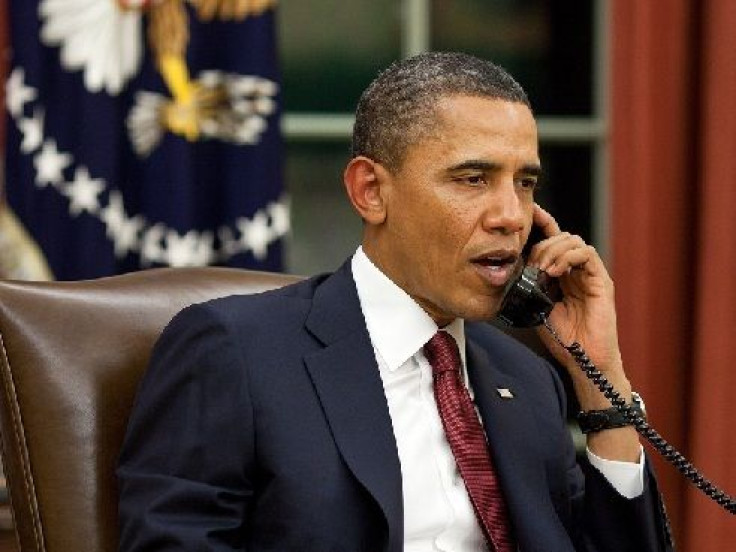NSA FISA Surveillance: Obama Likely To Back Secret Court Reform, Senator Says

Despite President Obama’s full-throated defense of the National Security Agency’s sweeping surveillance programs, senators pushing to reform the secret court that oversees these programs believe the president could back their effort.
On Thursday, Democratic Sens. Richard Blumenthal of Connecticut, Tom Udall of New Mexico and Ron Wyden of Oregon unveiled two bills to reform the Foreign Intelligence Surveillance Court (FISC), which approves requests for information in national security investigations. But the reforms, which are also cropping up in similar bills in the House of Representatives, will ultimately go nowhere unless the president is open to signing them. Obama, the senators say, is taking an interest in this legislation.
In particular, the idea of creating a special advocate at the court has been gaining steam among lawmakers on both sides of the aisle, and is the subject of one of the bills being introduced Thursday. The way the court works is that the government presents its side to the FISC without any pushback from a counter-party. Since revelations that the court has approved the bulk collection programs revealed by NSA contractor Edward Snowden -- and written lengthy secret legal opinions to justify those programs – a chorus of voices has called for creating a position at the court to argue the opposite side when the court takes up the most important programmatic or legal issues. As two former FISC judges have attested in recent weeks, to do their job well, judges benefit from hearing both sides an issue.
If Congress passes legislation to create a special advocate, “I think it is very, very likely” that Obama will sign it into law, Blumenthal said after the press conference. “Because he’s a good lawyer, he knows the importance of adversarial process.”
“Nothing certain,” Blumenthal added, “but I think he appreciates the reasons for this idea.”
On Thursday afternoon, a group of senators and House members will go to the White House to the National Security Agency’s controversial programs. On Wednesday, a panel of government officials said during a Senate Judiciary Committee hearing that the administration is considering various ideas on how to alter the secret court.
“I applaud him for stepping forward and starting to listen to people and moving the dialogue along,” Udall said at the announcement Thursday. Udall noted that this wasn’t the first time some senators would be discussing the issue of the secret court with Obama. “This is something that needs to be taken care of and we want to make sure we do legislation that he’s gonna sign when it gets up there.”
At the press conference, the three senators introduced two bills to change the make-up of the court and make its most significant proceedings more adversarial. The FISA Court Reform Act of 2013 would create the special advocate role to argue on behalf of privacy and civil liberties concerns when the court decides significant legal interpretations that would expand the government’s surveillance authority.
The second bill, the FISA Judge Selection Reform Act, would change how the judges on the court are appointed. Currently, the judges are appointed to seven-year terms by the chief justice of the Supreme Court, resulting in recent years in a court dominated by Republican-appointed judges. The bill would expand the number of judges from 11 to 13, with each member being appointed by a federal circuit. The bill would also change the make-up of the Foreign Intelligence Surveillance Court of Review, which reviews legal decisions made by the 11-judge body, so that five court of review judges would be nominated by the chief justice but also approved by a five-member majority of the Supreme Court.
Sens. Tammy Baldwin, D-Wis., and Jon Tester, D-Mont., are also sponsors of the bills, and are being joined by a number of co-sponsors. Though lawmakers from both parties have discussed the idea of creating special adversary at the FISC, only Democrats have signed onto these two bills.
© Copyright IBTimes 2024. All rights reserved.












